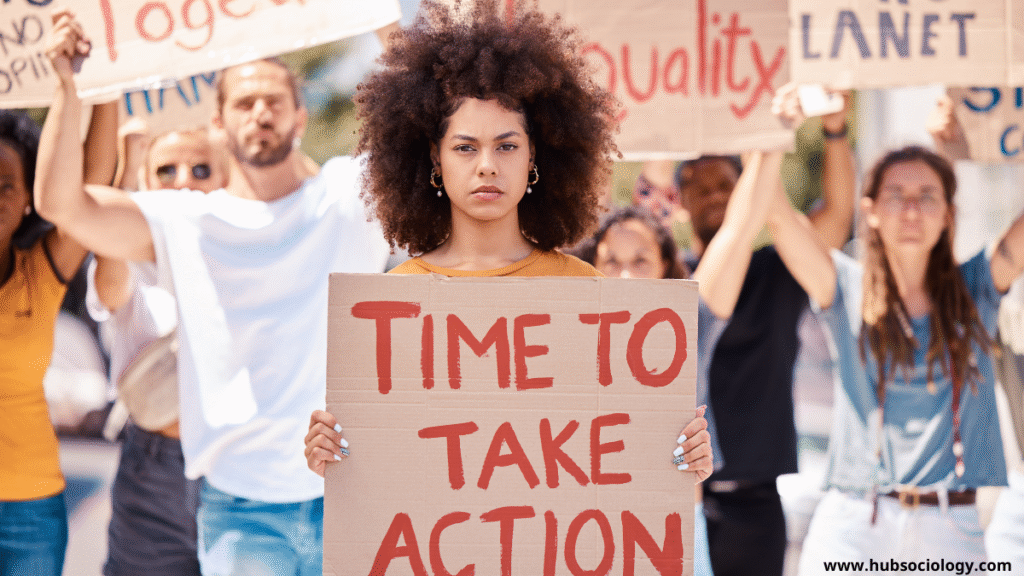Introduction on Renaissance and Enlightenment
The Renaissance (14th–17th centuries) and the Enlightenment (18th century) were two pivotal periods in European history that dramatically transformed society, culture, and intellectual thought. While the Renaissance marked the rebirth of classical knowledge and humanism, the Enlightenment emphasized reason, science, and individualism. From a sociological perspective, these movements reshaped social structures, power dynamics, and collective consciousness, laying the foundation for modern Western society.
This article explores the sociological implications of the Renaissance and Enlightenment, examining how they influenced social hierarchies, religion, education, and political thought. By analyzing these periods through the lens of sociology, we can better understand their lasting impact on contemporary social institutions.

1. The Renaissance: A Sociological Rebirth
1.1 The Shift from Feudalism to Humanism
The Renaissance emerged in Italy and gradually spread across Europe, marking a transition from the medieval feudal system to a more human-centered worldview. Sociologically, this period saw:
- Decline of Feudal Structures: The rigid feudal hierarchy, dominated by the Church and nobility, began to weaken as trade and urbanization grew. The rise of merchant classes (bourgeoisie) introduced new economic and social dynamics.
- Humanism and Individualism: Petrarch and Erasmus, among other Renaissance intellectuals, highlighted human potential and shifted the emphasis from divine determinism to human agency. This fostered a growing sense of individualism, which later became central to modern sociology (e.g., Max Weber’s theories on individualism and capitalism).
1.2 The Role of the Printing Press
The invention of the printing press (c. 1440) by Johannes Gutenberg revolutionized knowledge dissemination. Sociologically, this led to:
- Increased Literacy: Books became more accessible, reducing the Church’s monopoly on education.
- Spread of Secular Ideas: The printing press facilitated the circulation of humanist and scientific texts, challenging traditional religious authority.
1.3 Art, Culture, and Social Change
Renaissance art reflected changing social values:
- Patronage System: By commissioning artwork, wealthy businessmen and monarchs (like the Medici family) changed the focus of cultural creation from exclusively religious to secular and humanist topics.
- Representation of Class: Portraits and sculptures began depicting individuals realistically, symbolizing the rising status of the middle class.
2. The Enlightenment: Reason, Science, and Social Transformation
2.1 The Rise of Rational Thought
The Enlightenment, also called the “Age of Reason,” emphasized empirical evidence and skepticism toward traditional authority. Key sociological developments included:
- Secularization: Thinkers like Voltaire and Diderot criticized religious dogma, advocating for secular governance. This contributed to the decline of the Church’s social influence.
- Scientific Revolution: Figures like Newton and Galileo promoted empirical methods, influencing later sociological positivism (e.g., Auguste Comte’s scientific approach to society).
2.2 Social Contract Theory and Political Sociology
Enlightenment philosophers redefined the relationship between individuals and the state:
- John Locke: Influenced contemporary democratic ideology with his defense of natural rights (life, liberty, and property).
- Jean-Jacques Rousseau: Proposed the “social contract,” suggesting that political authority derives from collective consent, not divine right.
- Montesquieu: Influenced contemporary constitutional governments by promoting the division of powers.
These ideas laid the groundwork for revolutions (e.g., American and French Revolutions), fundamentally altering political sociology.
2.3 Education and the Public Sphere

The Enlightenment promoted education as a tool for social progress:
- Encyclopédie: Edited by Diderot, it compiled scientific and philosophical knowledge, democratizing learning.
- Salons and Coffeehouses: These became hubs for intellectual exchange, fostering a nascent “public sphere” (a concept later developed by Jürgen Habermas).
3. Comparative Sociological Analysis: Renaissance vs. Enlightenment
| Aspect | Renaissance | Enlightenment |
|---|---|---|
| Primary Focus | Humanism, art, classical revival | Reason, science, political reform |
| Social Change | Rise of bourgeoisie, decline of feudalism | Secularization, democratic ideals |
| Key Thinkers | Petrarch, Da Vinci, Michelangelo | Locke, Voltaire, Rousseau |
| Impact on Power | Shift from Church to merchant elites | Challenge to monarchy, rise of republicanism |
| Cultural Shift | Artistic individualism | Intellectual and political individualism |
3.1 Religion and Secularization
- Renaissance: While still religious, society began valuing human achievements alongside divine worship.
- Enlightenment: Philosophers openly criticized religion, advocating for secular governance and scientific inquiry.
3.2 Class and Social Mobility
- Renaissance: The aristocracy continued to rule, but the merchant class gained power.
- Enlightenment: Ideas of equality and meritocracy emerged, setting the stage for modern class struggles (e.g., Marx’s critique of capitalism).
4. Lasting Sociological Impact
4.1 Modern Democracy and Human Rights
Enlightenment ideals directly influenced:
- The U.S. Declaration of Independence (1776) and French Declaration of the Rights of Man (1789).
- Contemporary debates on freedom, equality, and governance.
4.2 The Scientific Method in Sociology
The Enlightenment’s emphasis on reason shaped:
- Positivism (Comte, Durkheim).
- Critical theory (Marx, Frankfurt School).
4.3 Education and Mass Media
Both periods contributed to:
- The modern education system.
- The concept of an informed citizenry, crucial for democratic societies.
Conclusion on Renaissance and Enlightenment
The Renaissance and Enlightenment were not merely historical periods but profound sociological revolutions. The Renaissance initiated a cultural and economic shift toward humanism and individualism, while the Enlightenment institutionalized reason, science, and democratic governance. Together, they dismantled medieval structures and laid the foundation for modernity.

From a sociological standpoint, these movements illustrate how intellectual and cultural shifts can redefine power, class, and collective identity. Their legacies persist in contemporary debates on democracy, secularism, and social justice, proving that the ideas born in these eras continue to shape society today.
Do you like this this Article ? You Can follow as on :-
Facebook – https://www.facebook.com/hubsociology
Whatsapp Channel – https://whatsapp.com/channel/0029Vb6D8vGKWEKpJpu5QP0O
Gmail – hubsociology@gmail.com
Topic related question on Renaissance and Enlightenment
5-Mark Questions on Renaissance and Enlightenment (Short Answer)
- Define the Renaissance and its key sociological impact.
- How did the printing press influence society during the Renaissance?
- Name three Enlightenment thinkers and their contributions to political sociology.
- What was the role of humanism in the Renaissance?
- How did the Enlightenment challenge traditional religious authority?
- Explain the concept of the “social contract” in Enlightenment thought.
- What was the significance of salons and coffeehouses during the Enlightenment?
- How did Renaissance art reflect changing social structures?
- What were the major differences between Renaissance and Enlightenment thought?
- How did the bourgeoisie rise in influence during the Renaissance?
10-Mark Questions on Renaissance and Enlightenment (Detailed Answer)
- Discuss the impact of the Renaissance on the decline of feudalism and the rise of the bourgeoisie.
- Analyze how Enlightenment ideas contributed to the French and American Revolutions.
- Compare the religious views of the Renaissance and the Enlightenment.
- Explain the role of education in the Enlightenment and its long-term sociological effects.
- How did the Renaissance and Enlightenment contribute to the development of individualism?
- Discuss the influence of the printing press on knowledge dissemination and social change.
- Evaluate the role of women in Renaissance and Enlightenment intellectual movements.
- How did Enlightenment philosophers like Locke and Rousseau shape modern democratic thought?
- Explain the shift from religious to secular authority during the Enlightenment.
- What was the significance of the Encyclopédie in spreading Enlightenment ideas?
15-Mark Questions on Renaissance and Enlightenment (Essay-Type)
- “The Renaissance and Enlightenment laid the foundation for modern Western society.” Discuss this statement from a sociological perspective.
- Compare and contrast the social and intellectual changes brought about by the Renaissance and the Enlightenment.
- How did the Renaissance and Enlightenment contribute to the rise of capitalism and modern democracy?
- Analyze the role of reason and science in Enlightenment thought and its impact on modern sociology.
- “The Enlightenment was a radical break from traditional authority.” Critically examine this statement with sociological evidence.
- Discuss the long-term effects of Renaissance humanism and Enlightenment rationalism on contemporary education and governance.
- How did the Renaissance and Enlightenment challenge existing power structures (Church, monarchy, feudalism)?
- Examine the influence of Renaissance art and Enlightenment philosophy on modern cultural and political ideologies.
- “The printing press was the most revolutionary invention of the Renaissance.” Do you agree? Justify your answer sociologically.
- How did the Enlightenment contribute to the development of sociological theories (e.g., positivism, social contract theory)?
